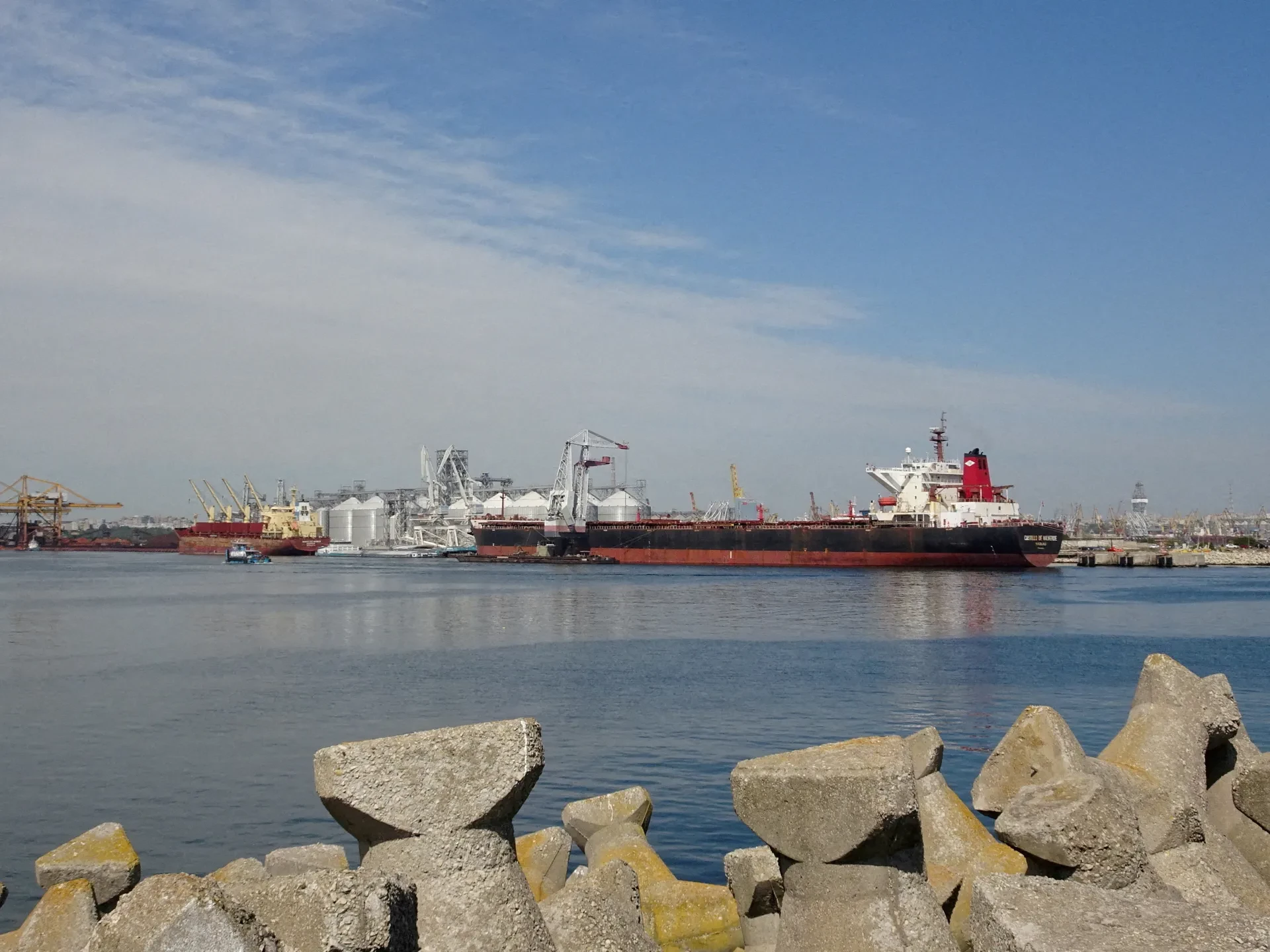Russian drones targeted Ukraine's southern Odesa region in the early hours of Sunday, with Moscow hitting a Danube port on the border with NATO member Romania in an attack condemned by Bucharest.
Moscow has hit Ukrainian port infrastructure on the Black Sea and on the Danube for weeks, since exiting a key deal that allowed the safe passage of ships carrying grain.
The attack came on the eve of a summit in Russia between Vladimir Putin and Turkish leader Recep Tayyip Erdogan, who hopes to revive the grain deal.
The Odesa region attacks also came as Kyiv has claimed some successes in its counter-offensive on the southern front this week.
Ukraine said Russia had hit the Odesa region with a barrage of Iranian-made Shahed drones, saying it downed 22 of them.
But Kyiv also said that some of the drones hit the Danube area, saying that at least two people were wounded in attacks on "civilian industrial" infrastructure.
The Russian army said it had targeted "fuel storage" facilities in the Ukrainian port of Reni, which lies on the Danube river that separates Ukraine from Romania.
Moscow has targeted the Danube ports of Reni and Ismail -- both near Romania and across the war-torn country from fighting hotspots -- several times over the last few weeks.
Reni -- which also lies close to Moldova -- is a sea and river port and important transport hub.
Bucharest's defence ministry said the attacks were "unjustified and in deep contradiction with the rules of international humanitarian law".
It also stressed that the Moscow drone attacks did not "generate any direct military threat to the national territory or territorial waters of Romania."
Neighbouring Moldova called the attack "brutal."
"Russia must be held accountable for every piece of infrastructure destroyed," Chisinau's pro-EU President Maia Sandu said on social media.
- Ukrainian breakthrough in south -
The Odesa region attacks came as Kyiv this week reported some successes on the southern front of its counteroffensive.
On Wednesday, Kyiv said it had recaptured the village of Robotyne, calling it a strategic victory that would pave the way for its forces to push deeper into Russian positions towards Moscow-annexed Crimea.
General Oleksandr Tarnavskiy, leading the southern counteroffensive, told The Guardian newspaper this weekend that Kyiv's army has made an important breakthrough by breaching Russian lines near Zaporizhzhia.
"We are now between the first and second defensive lines," Tarnavskiy -- who led Ukrainian troops to liberate the southern city of Kherson -- told the UK paper.
Heavily mined territory had slowed Ukrainian troops, saying that sappers had cleaned a route by foot and at night.
The paper quoted him as saying that Kyiv's forces are now back on vehicles and that Russia has redeployed troops to the area.
"But sooner or later, the Russians will run out of all the best soldiers," Tarnavskiy said.
"Everything is ahead of us."
He admitted difficult losses for Kyiv, saying that "we are losing the strongest and best."
- Moscow's recruitment drive -
Russia has not announced another mobilisation, seen as an unpopular measure, but has led an active campaign to attract more men into the military as its Ukraine offensive drives on into a 19th month.
Ex-president and Security Council chairman Dmitry Medvedev said Sunday that Moscow had recruited 230,000 people into the army since the start of the year.
"According to data from the ministry of defence, 280,000 people have joined the Russian army on contracts from January 1," Medvedev said, according to the TASS news agency.
"Part of them were in the reserves, part of them volunteers and other categories," he added, during a visit to the Far Eastern Russian island of Sakhalin.
In early August, Medvedev said the army had recruited around 230,000 people since the start of the year.
AFP is not able to independently verify these numbers.
In September last year, the Kremlin made a U-turn on promises not to announce a military draft, announcing a partial call-up to make up for losses on the Ukrainian front that led to the recruitment of 300,000 men.
But the announcement also triggered another wave of emigration from Russia, with hundreds of thousands believed to have fled abroad.


